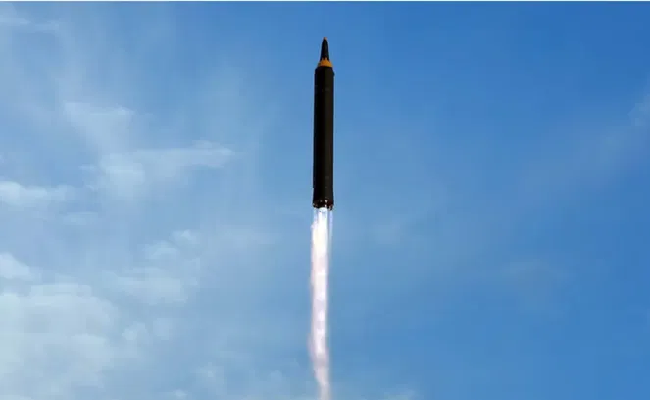.gif)
.gif)

North Korea secretly conducted six nuclear weapons tests at the Punggye-ri site in the mountainous North Hamgyong province between 2006 and 2017, according to the US and South Korean governments.
A Seoul-based human rights group said in a report on Tuesday that radioactive materials spread by groundwater from an underground nuclear test site could expose thousands of North Koreans, as well as those in South Korea, Japan and China.
Radioactive materials may have spread to eight nearby cities and countries where more than a million North Koreans live and where groundwater is used for drinking and other daily activities, according to a study by the Transitional Justice Working Group. Additionally, it warned that nearby South Korea, China and Japan could be at risk from smuggled agricultural and fishing items coming from the North. For the study, which was supported by the National Endowment for Democracy, a nonprofit organization funded by the US Congress, the group, which was formed in 2014.
The group, which was created in 2014, worked with nuclear and medical experts and defectors and used open-source information as well as publicly available government and United Nations (UN) reports, according to a study supported by the National Endowment for Democracy — a nonprofit organization funded by the US Congress. Hubert Young-hwan Lee, head of the group and co-author, said: “This report is significant in that it shows that North Korea's nuclear tests could threaten the right to life and health not only of the North Korean people, but also of the people in the South. Korea and other neighboring countries”.
After the North's earlier nuclear tests, China and Japan increased their radiation monitoring and expressed concern about possible exposure, but did not openly provide information about contaminated food. North Korea has dismissed concerns about potential health risks raised by many outside experts, saying there had been no leakage of hazardous materials after previous nuclear tests, without providing evidence.